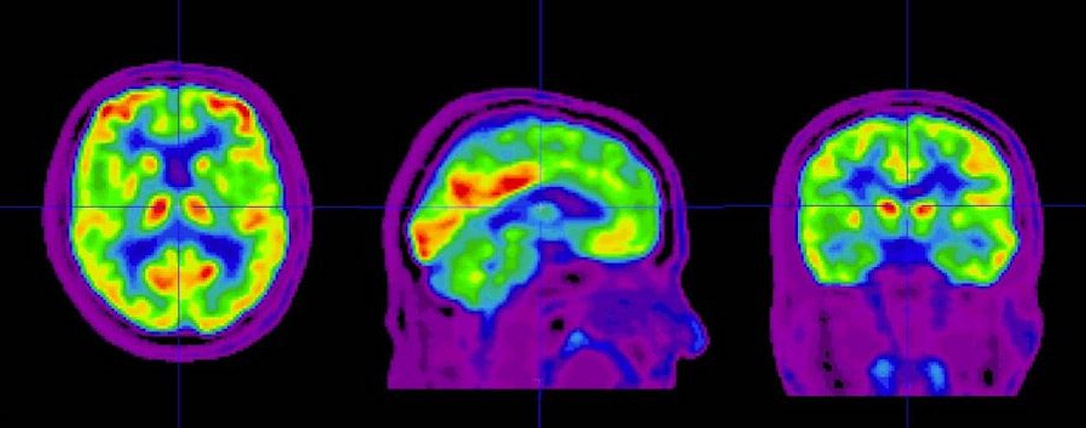Switzerland advances personalized Alzheimer’s therapy

Tokyo (SCCIJ) – The two Swiss-based companies Positrigo and Bottneuro have joined forces to foster the early diagnosis and personalized treatment of Alzheimer’s disease, the most common form of dementia.
A preliminary comparison of PET images of the Postrigo positron emission tomography.
Brain stimulation
Several initiatives are underway intending to find a treatment regimen to slow its progression or even to cure it. Besides pharmacological interventions other concepts consider the stimulation of certain brain areas to remove the cells which are known to cause AD.
Bottneuro focuses on such an approach where non-invasive electrical stimulation is applied. However, before the treatment can occur, it is of crucial importance to know exactly which brain areas have to receive the stimulation.
Positron emission tomography (PET) is a functional imaging technique that uses positron-emitting imaging agents to visualize and quantify a wide range of biochemical processes. It is known as the diagnostic gold standard as it allows to quantify the load of brain amyloid, or neurofibrillary tangles and glucose hypometabolism. Hence, brain PET imaging is needed before Bottneuro’s treatment can be administered.
At this point, Positrigo has agreed with Bottneuro to deliver several of its brain PET imaging devices after their technical approval. Headquartered in Zurich, Switzerland, the medical device company was founded in 2018 as a spin-off of ETH Zurich. The start-up develops nuclear medical imaging devices to advance functional imaging.
A clinician from Nuclear Medicine Clinic at University Hospital Zurich (USZ) is testing the Postrigo PET device.
Scanning centers
“We are thrilled to have a collaboration agreement in place with Positrigo. Their brain PET device will allow us to offer affordable PET scans at our AD Scanning Centers and provide us with crucial 3D-datasets needed for our personalized AD treatment plans”, states Bekim Osmani, CEO of Bottneuro.
Jannis Fischer, CEO and co-founder of Positrigo states: “The growing demand for our technology demonstrates the need to have more affordable brain PET devices in place. We look forward to working with healthcare providers and companies like Bottneuro to make brain PET more widely available and accessible.”
Bottneuro, a spin-off of the University of Basel, has been recently listed on Forbes as one of the 30 best University spin-offs in the three German-speaking countries Switzerland, Austria, and Germany to be watched in 2021. The company aims to become a leading provider of diagnosis and personalized neuromodulation therapies for early-stage AD patients. Its approach consists of patient-specific electrical brain stimulation sessions which are applied through wearable headsets.
With the patented NENI® platform technology, Bottneuro can validate thousands of stimulation protocols on glia cells, which play an important role in the progress of AD. The basic research has been supported by the SNF and the Gebert Rüf Stiftung. Venture Kick substantially supported Bottneuro with the business development.
Dementia has physical, psychological, social, and economic impacts, not only for people living with dementia but also for their carers, families, and society at large. According to the 2021 World Alzheimer Report, the number of people age 65 and older with AD may grow to a projected 12.7 million people, barring the development of medical breakthroughs to prevent, slow, or cure AD.